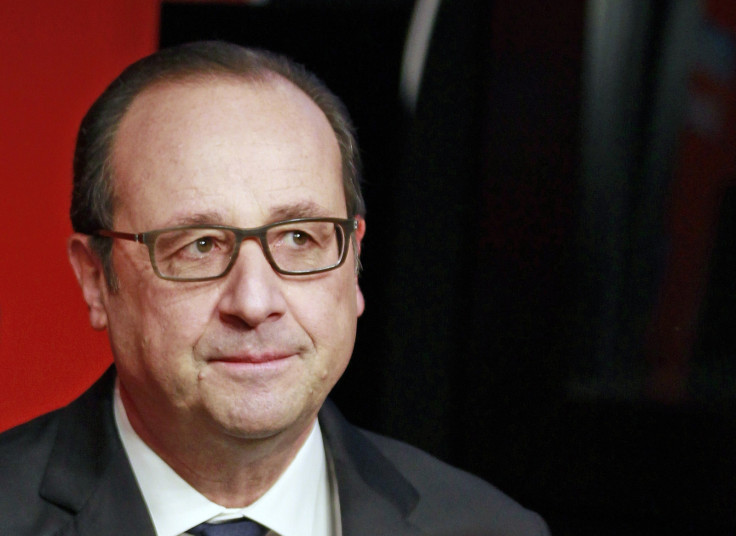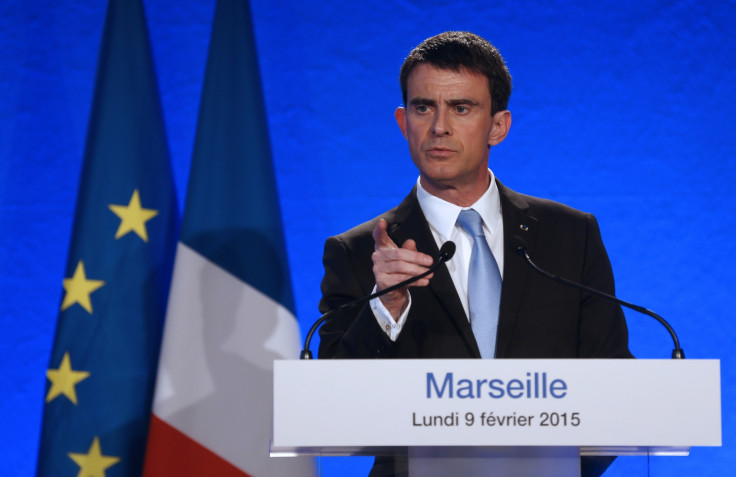Simon Heffer: French public dismisses François Hollande and his doomed economic project
The French departmental elections on 29 March ended in a thrashing for François Hollande and his socialist party. Outnumbered two to one by Nicolas Sarkozy's conservative UMP, the socialists must now limp through the last two years of President Hollande's mandate, with another drubbing on the cards for later in 2015 when France votes in its regional elections.
Hollande and his party are paying the price not just for a dismal economic performance since he was elected in May 2012, but for the failure inherent in that dismal performance to restructure and reform the French economy.

Hollande himself seemed to get part of the message after the last local elections a year ago, when he kicked out of his government some of the more prehistoric socialists with whom he had saddled himself, and replaced them with people who, in some cases, believed even in the much-derided "Anglo-Saxon economics".
One of these was Emmanuel Macron, a thirtysomething former investment banker who has been put in charge of reforming and deregulating some aspects of the nation's economy. His attempts have been obstructed at every turn and have been met with howls of outrage by the left, despite the measures being both rather mild but promising certain improvements in the country's economy.
One such battle was over the right for shops to open in France on Sundays, a right that has been granted only in the most limited form and mainly in areas designated to be those of high tourism.
Unemployment is nearly twice as high in France as it is in Britain, not least because excessive regulation makes it nearly impossible to sack anyone. And if companies can't sack people, they tend to be reluctant to hire them in the first place. Meanwhile, in the event of someone losing his or her job, lavish social security benefits leave them in no hurry to find another one – but those benefits help account for the fact that around 56% of France's GDP is spent in the public sector.
Even some of the country's most ardent consensualists have conceded their country is being taxed and regulated almost to death; but for the moment, France lacks the leadership to do anything about this.
The electorate certainly seems to be washing its hands of Hollande and his economic project; whether the alternative will be any more successful, in a country determined not to embrace globalisation in the way other advancing economies are, remains to be seen. Only the most massive restructuring of its economy will, in the end, save France – and Hollande is manifestly not the man to do it.
Hollande's 'battle' with Valls
He is apparently at odds with his prime minister, Manuel Valls, who appears increasingly disillusioned with ideas of doctrinaire socialism. Valls has complained in private at the quality of ministers in the government with whom he has to deal, and to whom he has to delegate the crucial tasks of governing France.
A reshuffle is expected soon – though it is said Hollande is concerned not to give an impression of haste or panic by doing it quickly. He would certainly be wise to broaden the intellectual and doctrinal base of his government in the hope of getting it and his country out of the cul-de-sac into which it has now disappeared.

But certainly, if Hollande is to stand any chance of being re-elected himself, and of making his own party seem remotely credible, he is going to have to come up with some sparkling new policies, driven through by sparkling new people.
If Hollande cannot put together a government under Valls that improves party discipline and starts, in the crudest terms, to impress the French people that it is governing them effectively, the president will be in serious trouble.
That doesn't just mean he and his party are on course to lose the next presidential election – an election in which he may not even be his party's candidate, given how dismal their estimate of him is at the moment. It could even mean, before then, if he cannot put together a government that at least seems to function effectively and stops exciting the contempt of the vast majority of the French people, his own credibility as president – not high as it is – becomes fatally undermined.
No French president in the Fifth Republic has resigned since Charles de Gaulle in 1969, shortly before he died. If Hollande is to avoid that humiliating fate, he may have to take the less grave option of calling a parliamentary election. His party would almost certainly lose it and there would have to be a period of cohabitation – a left-wing president with a right-wing government.
But as matters are becoming more and more desperate for France's president and his party, he may have to take that course to cling on to power himself. After the election results, prime minister Valls promised "jobs, jobs, jobs". The French have heard it all before and it has always been meaningless. That is why someone else may have to be asked to take up the reins and try something different.
Dr Simon Heffer is a British commentator and author who has written columns for The Daily Mail, The Daily Telegraph, The Spectator and The New Statesman. He is the biographer of Enoch Powell, Thomas Carlyle and Ralph Vaughan Williams and recently published High Minds: The Victorians And The Birth Of Modern Britain.
© Copyright IBTimes 2024. All rights reserved.






